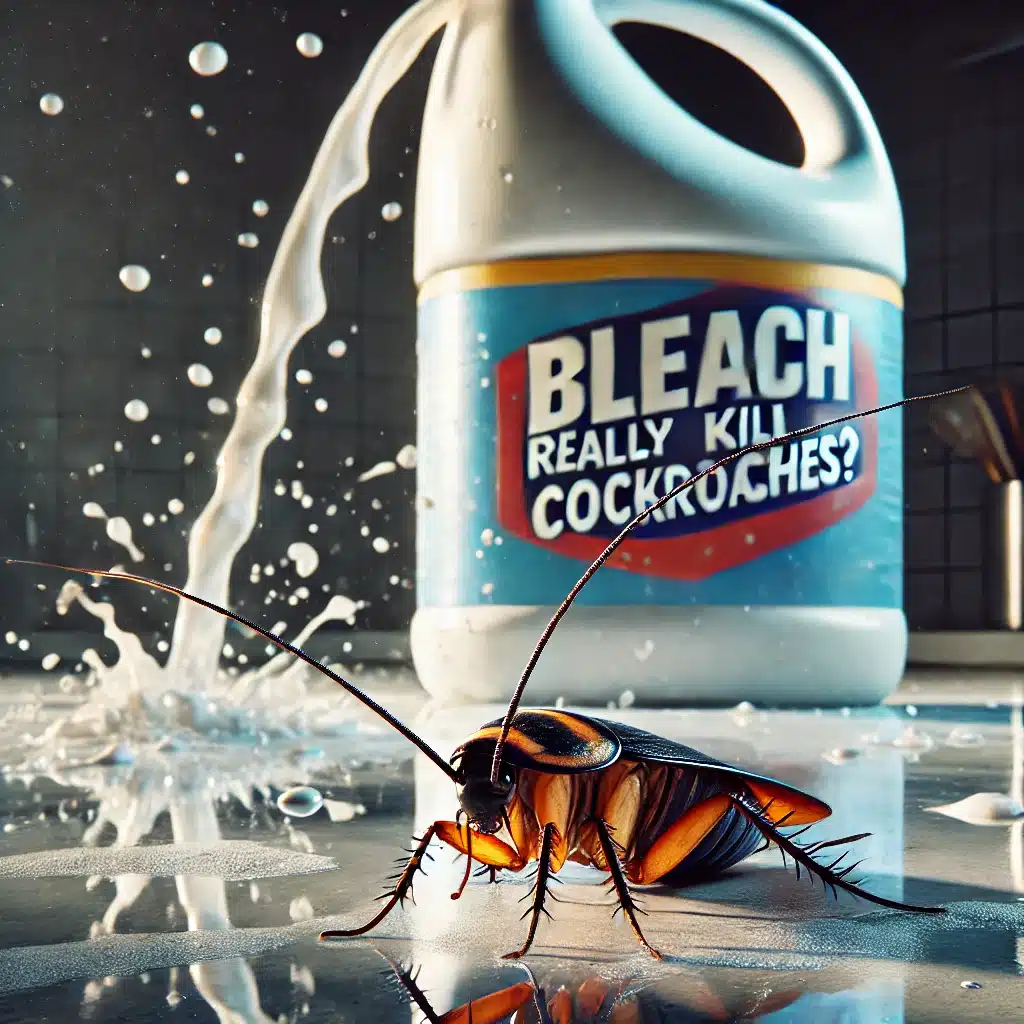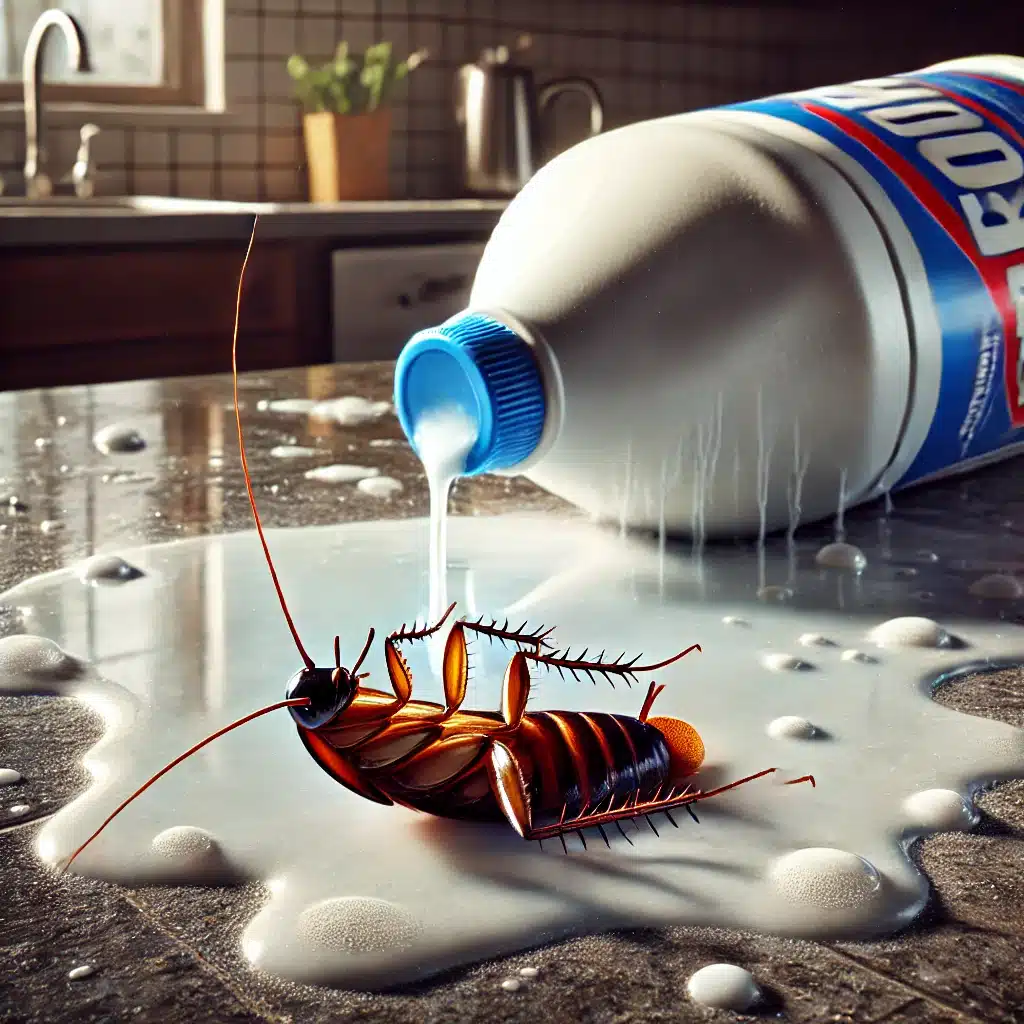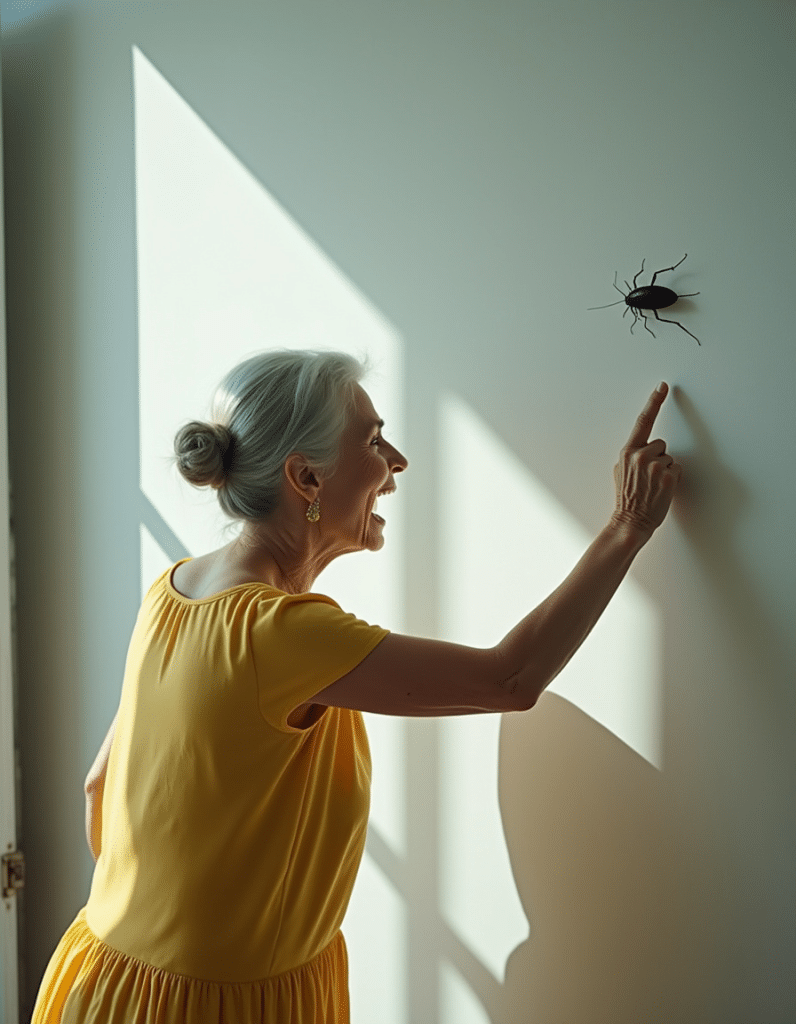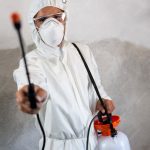
Banish Cockroaches: The Truth About Bleach Effectiveness
Are you trying to banish cockroaches for good? Get The Facts Now. Roaches can infest your home and drive you mad. Cockroaches scurry under the counter in your kitchen and occupy wet, dark spaces. Most prefer a quick solution. They can grab a bottle of bleach when seeing roaches in your kitchen environment. But will it work?
Here in this article, we will go over how bleach works with cockroaches. We will go over its effectiveness and its vulnerabilities. We will also look at safer alternatives for taking care of a roach infestation. By then, you will know whether bleach deserves a place in your bug-fighter arsenal.
What Makes Bleach a Popular Option for Killing Cockroaches
Bleach is a strong player when it comes to roaches, at least in theory. It kills a lot of germs. It works for getting rid of nasty stains and disinfecting a surface. Most believe that it will kill roaches, too. That strong odour creates a perception that it will even drive insects away. Popular, but not necessarily effective in the long run, isn’t a combination that works.
Roaches, however, are tenacious little animals that survive in poor living environments. Domestic bleach is most commonly sodium hypochlorite. Sodium hypochlorite will kill a roach’s inner processes. But will it work for an infestation?
Learning About Bleach’s Active Substance
The active substance in most bleach is sodium hypochlorite. Manufacturers mix it with water to make a cleaning mixture. The mixture inactivates and destroys bacteria, viruses, and mold. Humans use it most frequently in many cases such as:
- Laundry to whiten clothes.
- Cleaning a surface to disinfect a surface.
- Sanitize a bathroom to disinfect sink, tile, and a tub.
- Clean surface stains
When you drown a roach in bleach, sodium hypochlorite will break down fats and proteins. That will kill roach exoskeletons. It will stop inner processes when a roach inhales or ingests enough vapours of bleach. That is not to say, however, that bleach will kill all roaches it comes in contact with.
How Bleach Injures Cockroaches
Bleach can hurt roaches in a variety of ways:
1.Exoskeleton Breakdown
The roach’s exoskeleton is composed of fats and acids. Bleach will break down fats when it comes in contact with them. That will make a roach become dehydrated and killed.
- Internal Breakdown
A roach that consumes bleach residue will have its inner structures compromised by the chemical. That can cause a deadly reaction.
3.Toxic Vapours in Confinement
The vapours of bleach will smother roaches when trapped in them. In high concentrations of vapours and little room, roaches can become dead.
- Killing of Eggs
Soaking roach eggs in bleach will kill them. That can stop a future hatch. But roaches prefer to seek out hidden spaces.
Note: All of these tips work effectively. But life doesn’t make perfect contact. You can pour bleach down a drain, but roaches inhabit wall spaces. You can disinfect with bleach, but roaches forage in wet pantries. Reaching all roaches’ hidden spaces proves challenging.
Potential Dangers in Using Bleach
Bleach can hurt cockroaches. Bleach can hurt your family and yourself, too, when not handled with care. Its strong fumes burn eyes and skin. Also, when mixed with certain cleaners, it releases toxic vapours. That danger is amplified when you have a pet and/or kids.
Bleach can damage surfaces, too. Certain counter-tops or material can become irreparably stained. Overuse can wear off finishes off of flooring or furniture. You can kill a few roaches but pay your home a lot of dollars in return. That is a problem for most homeowners.
Drawbacks Common to Most Uses of Bleach for Controlling Roaches
You wonder why bleach isn’t being used for commercial roach control in most cases. Let’s go through its principal drawbacks:
- Direct Application Necessary
Roaches move fast and seek refuge in out-of-the-way crevices. Splash a roach in motion with bleach and it won’t necessarily hit its mark. You must apply bleach in roaches’ nesting and travelling routes. That can be a problem.
- Short Term Effect
Bleach won’t stop re-infestation. Roaches will flee with strong odour but re-infest when smell vanishes. One single bleaching won’t kill an infestation.
- Cockroach Resistance
Roaches can become tolerant or resistant to chemical irritants. Roaches can use alternative routes or nesting locations when smelling bleach.
- Danger and Surface Damage
Bleach can hurt your hands, your pet, or your treasures. That danger can overshadow meager gain.
- Active Infestations
Extensive roach infestation necessitates a multi-faceted attack. Bleach alone can’t kill all life stages in out-of-the-way locations.
Alternatives That Can Beat Out Bleach Liquid
Long-term roach controlling generally involves a combination of approaches. Some use organic approaches, and others use commercial bug killers. Some of the following approaches can work for you:
- Diatomaceous Earth
This powder consists of fossilized algae. Diatomaceous earth dries out a roach and infuses its carapace. Put diatomaceous earth near baseboards and at the back of appliances.
Roaches poison can be laced with borax and boric acid. These can mix with food garbage and sugar for homemade bait. Roaches consume and then pass away in a matter of a few days. Put these baits out of pet and kids’ access. Inhaling and contact with roaches can cause irritation with improper use of boric acid.
- Sugar and Baking Soda
The same principle that works for the borax mixture works for this one, too. Cockroaches munch on the mixture of both sugar and baking soda together. Once in roaches’ bellies, mixture creates a gas that can kill them. That is cheap and relatively safe. You will have to search for roach trails and nests, but.
Certain oils able to keep roaches off. Give them a one-way trip with tea tree and peppermint oils. Combine with water and apply to windows, doors, and baseboards. That won’t kill roaches. That will simply discourage them from entering, and will work for a minor infestation.
- Commercial Insecticides
Utilize sprays and baits with roach labels and fipronil and hydramethylnon active ingredients. Those will have a better chance at incapacitating roaches and not with bleach. Insect growth regulators are present in these, too. That is, roaches cannot breed with them. Check for security in the label.
When to Call a Professional Cockroach Exterminator
Sometimes a roach infestation is too large for non trained person to tackle. If roaches can be seen during daylight, that’s a sign. Bad infestations cause actual stress and medical concerns. Pest professionals can deliver targeted control. Experts understand where to find nests, apply correct chemicals, and follow through with success checking. They even include follow-up appointments that stop roaches from recurring.
Here’s an example: A pest service might apply an IGR (Insect Growth Regulator) and a thorough treatment for German cockroaches. That service can run up to about $599. The service can include a follow-up in two weeks, and an optional follow-up in four weeks. For other cockroach types, they can apply granular bait. Pricing varies, and companies make quarterly inspections to ensure long-term success.
Professional appointments are not cheap. But pay for themselves in the long run. A roach-free home means fewer medical dangers and less property damage. Techs even include tips for future roach prevention. Got problem infestation with roaches at your home or business? Connect with Maximum today calling (905) 582-5502 or (289) 396-5426. Our insured bonded trained experts exterminators are standing by.






